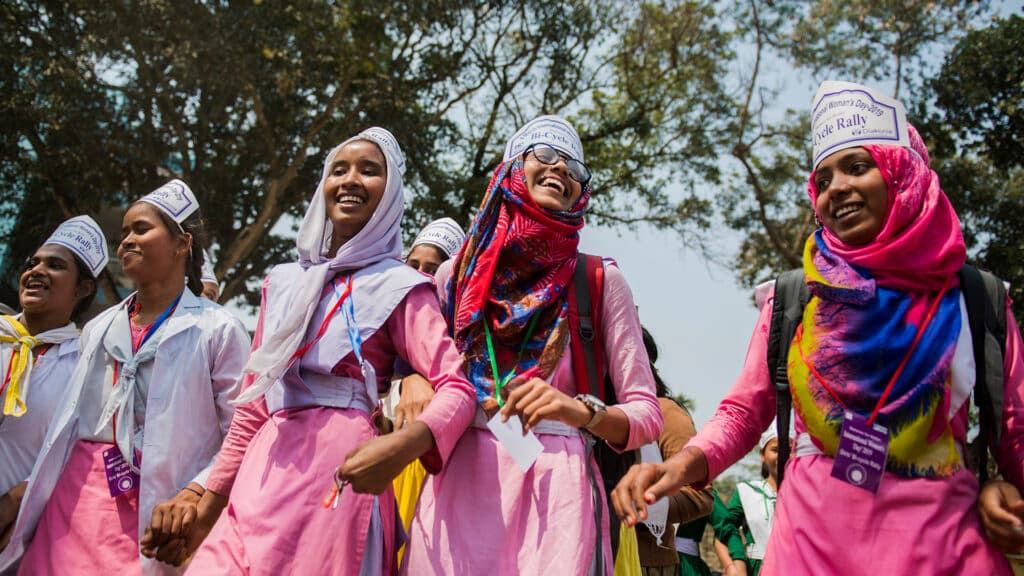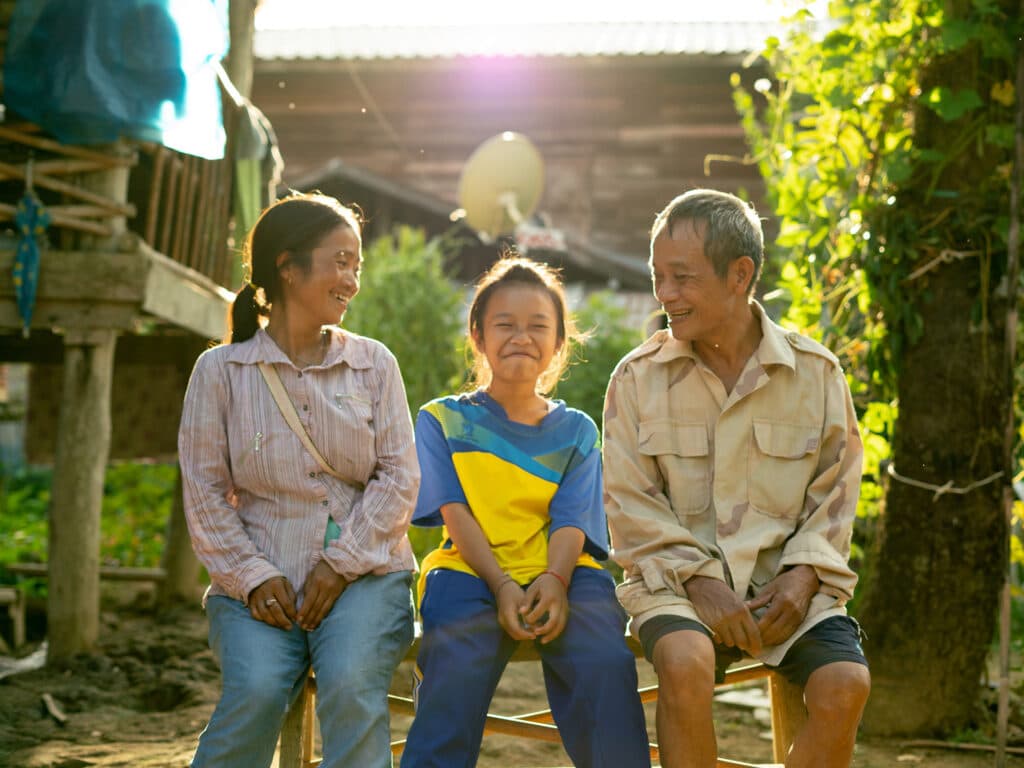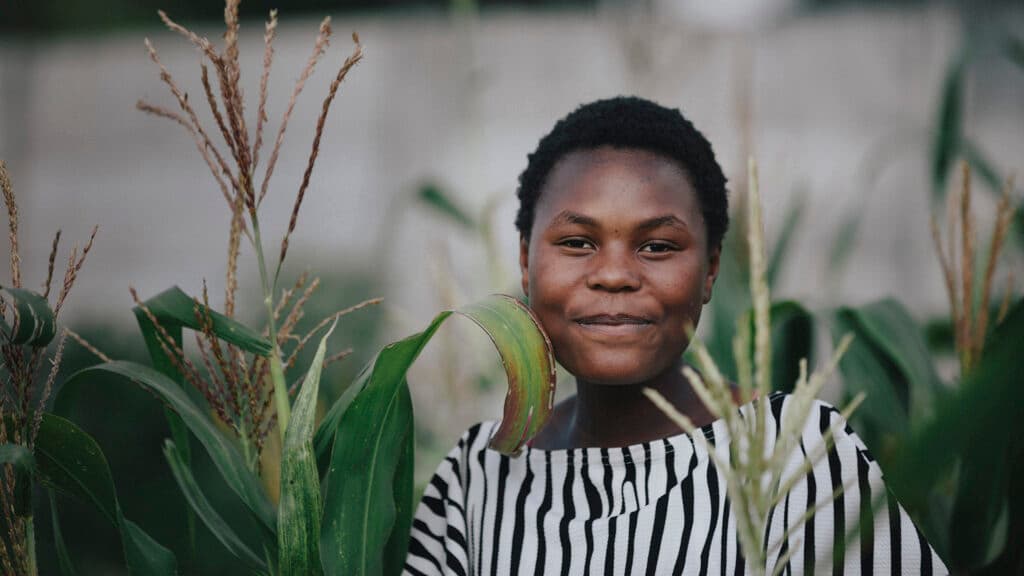
Nunnaree Luangmoi: Creating a More Equitable Society
7 March, 2023As the world celebrates International Women's Day, it is important to recognize and honour the women who are making a difference in the lives of others. In this special interview, we speak with Nunnaree Luangmoi, Co-founder and Director of the Center for Girls Foundation (CFG), one of the partners of Diakonia in Thailand. Her tireless efforts to provide girls and young women with access to education, training, and support have empowered them to become confident and successful individuals, breaking down barriers and overcoming discrimination. Her work not only transforms the lives of individuals but also contributes to creating a more just and equitable society for all.
Join us as we gain insights from her personal journey, the challenges she has faced in her work, and her vision for a brighter future for women and girls in Northern Thailand.
What inspired you to advocate for women's and children's rights, and what drives you to make a difference?
"As a victim of human trafficking, I personally experienced the exploitation that young girls face in our society. I had to drop out of school at 13 to work as a nanny, receiving barely any pay and having no time off to see my own family. However, it wasn't until years later that I realized I was a victim of human trafficking.
After finishing high school, I began volunteering with an organization that advocated for women's and children's rights. I felt a strong desire to help other girls in similar situations. In 1997, I founded the Center for Girls to fight against sexual abuse and let victims know they are not alone. The young woman in my community deserves a better life than the one they were given.
Today, as we celebrate the 25th anniversary of the Center for Girls, we are expanding our focus to include men and boys in our efforts to create a better life for all in our community."

"From my experience, I think there are several significant barriers that prevent women and girls from reaching their full potential. These barriers include deeply ingrained beliefs within families and communities, patriarchal cultures that view women as inferior, and societal structures that undervalue women's contributions."
In your opinion, what are the barriers that prevent women and girls from reaching their full potential?
"From my experience, I think there are several significant barriers that prevent women and girls from reaching their full potential. These barriers include deeply ingrained beliefs within families and communities, patriarchal cultures that view women as inferior, and societal structures that undervalue women's contributions.
For instance, in many parts of Northern Thailand, girls historically had limited access to education compared to boys, as parents believed that girls would soon get married and leave the house. This mindset prevented girls from seeing the value of education and deprived them of the opportunities to pursue their dreams."

"Moreover, patriarchal cultures and gender-based discrimination continue to suppress women's voices and limiting their opportunities. Despite legal amendments to support women's rights, there remains a limited number of women in leadership positions, particularly at the grassroots level. This lack of representation means that women's voices are not adequately heard at the policy level. These structural barriers perpetuate gender inequalities and impede progress towards a more equitable society."
How does the organization address those barriers? How do you engage men and boys in advocating for women's rights and empowering women?
"At the CFG, we strive to address the barriers that prevent women and girls from reaching their full potential by creating a safe and supportive environment. Through our 'Women for Change' initiative, launched in 2015 with support from Diakonia, we raise awareness among women about their rights and empower them to make positive changes in their lives and communities.
Now we are in our second phase. We continue to build capacity and establish a women's council for sustainable progress. Our 'Social Empowerment for Gender Equality Project' engages men and boys to support our work on gender equality. We collaborate with local government authorities, policymakers, civil society networks, and the private sector to advocate for equal opportunities and create a supportive environment for both men and women to work together."

Can you share examples of empowered women in the community supported by your organization?
"One particularly inspiring story is that of Ms. Prakairat Tandee, who actively volunteered with us and attended several of our training programs. With our support and guidance, she gained the confidence and inspiration to run for the position of village headwoman in her community. Despite the patriarchal norms and the fact that only three out of 102 village head positions in the Chiang Khong district were held by women at that time, Ms. Tandee courageously ran for the election and made history by winning the race. She also appointed two more female assistants to her team, making the entire leadership team in her village composed of women. This is a significant achievement and a great step towards breaking down gender barriers and empowering more women to lead and thrive in their communities."

“One of the most significant benefits of our partnership with Diakonia is their commitment to long-term collaboration. By working with us over the years, Diakonia has developed a deep understanding of the complex challenges facing women in our region and has provided us with the resources and support needed to create sustainable change.”
This year's International Women's Day theme is '#EmbraceEquity'; can you tell us how CFG embrace equity for women in the community?
"We are committed to embracing equity for women in all aspects of our work. As part of our project design process, we consider the unique contexts of the women participating in our activities. We recognize that providing equal opportunity alone is not enough, as each woman comes from a different starting point. We work with diverse women, including those from ethnic minority groups with different cultural beliefs, values, and languages. Some may not even have Thai citizenship. To ensure that our work is inclusive and empowering for all, we strive to create an environment that takes into account the diverse lived experiences of individuals and communities.

Through our partnership with Diakonia and the use of their gender toolbox, we have gained a deeper understanding of the importance of paying attention to the details and small things in our work. By analyzing the situation and understanding the context, we are better equipped to identify and address the systemic and structural barriers that prevent women from thriving. At CFG, we are dedicated to embracing equity for women and creating a world where all women can live and lead with dignity and respect."
How has your organization benefitted from its partnership with Diakonia?
"Throughout our seven-year collaboration, Diakonia has not only provided crucial funding but has also helped us to develop our organizational capacity and expertise in key areas such as data management, accounting standards, and feminist principles. Diakonia enables us to establish a strong foundation to better serve and empower women in our community.
One of the most significant benefits of our partnership with Diakonia is their commitment to long-term collaboration. By working with us over the years, Diakonia has developed a deep understanding of the complex challenges facing women in our region and has provided us with the resources and support needed to create sustainable change.
This kind of long-term partnership is critical for the success of any development effort. We are always excited to share our progress with Diakonia. We are also proud of how far we have come as a small local organization in Northern Thailand, now known to many international organizations."
About Center for Girls Foundation
The Center for Girls Foundation (CFG), founded in 1997, is dedicated to empowering women and children, reducing gender-based violence (GBV), educating people about human trafficking, and preventing the Commercial Sexual Exploitation of Children (CSEC) and all forms of child abuse. CFG has been in partnership with Diakonia since 2015.



